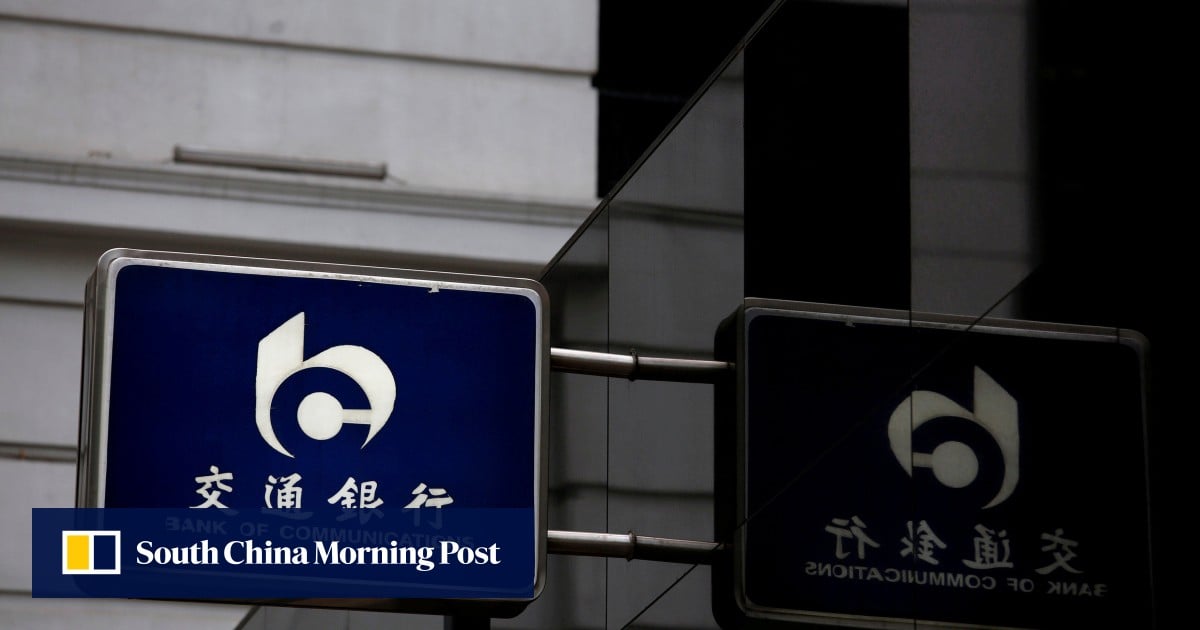
27 Mar Bocom delivers more confident outlook after posting slight rise in profits

Bank of Communications (Bocom), one of China’s top state-owned lenders, delivered a cautiously optimistic outlook for its business and the country’s economy even as it posted its slowest earnings growth since at least 2004.
Net profit at the Shanghai-based bank rose 0.7 per cent to 92.7 billion yuan (US$12.8 billion) in 2023, compared with 92.1 billion yuan in 2022, it said in a stock exchange filing on Wednesday, as China’s faltering economy weighed on earnings growth. This beat a consensus estimate of 89.2 billion yuan made by analysts polled by Bloomberg.
The year was dedicated to “consolidating our asset quality based on our hard work in the last three years”, said Liu Jun, president of Bocom. “Now, I can only tell you that the soil of asset quality under our feet is relatively solid.”
Operating income, primarily interest income and fees, climbed 0.3 per cent to 258 billion yuan from 257.3 billion the previous year. The lender is distributing 27.8 billion yuan in dividends for 2023, equal to 0.375 yuan per share.
“In 2024, the external environment will be more complicated, tough and uncertain,” said Bocom Chairman Ren Deqi. “But overall, China’s economy will continue to improve and its long-term positive outlook remains unchanged.
“With increasing forces supporting the high-quality development of the economy, investment will continue to grow, consumption will steadily improve and foreign trade will be more resilient. Banks will see more development opportunities.”
BoCom’s non-performing loan ratio, a metric for potential losses, dropped 0.02 percentage points to 1.33 per cent in 2023, compared with the previous year. However, its provision coverage ratio, an indicator of the amount of funds a bank sets aside to cover losses due to bad debts, increased by 14.5 percentage points to 195.2 per cent.
This comes as banks across the country face mounting pressure from authorities to extend credit to the country’s troubled property developers in a bid to shore up confidence.
As of the end of February, Chinese banks had approved more than 200 billion yuan in loans to more than 6,000 property projects, the Ministry of Housing and Urban-Rural Development said earlier this month.
The loans were approved under a mechanism known as “project whitelist”, which allows local governments to recommend residential projects to lenders for financial support.
Bocom said in February that it had assessed more than 1,400 projects and extended more than 400 million yuan worth of development loans to a project in the country’s eastern Shandong province.
HSBC teams up with Hong Kong Film Awards and local director to enrich the city’s cultural scene
HSBC teams up with Hong Kong Film Awards and local director to enrich the city’s cultural scene
Increasing exposure to the country’s debt-laden developers could depress profits for Chinese banks, as the lenders need to make more provisions for loans that may go sour due to defaults linked to plunging home sales.
Bank profits have been further squeezed by a cut to the five-year loan prime rate (LPR), a key mortgage benchmark, as Beijing ramps up measures to boost housing demand.
In February, the People’s Bank of China unveiled a 25-basis-point cut to the five-year LPR, marking the biggest cut that the central bank has made since it revamped the system in 2019. The central bank last cut the rate by 10 basis points in June.
The fresh LPR cut could narrow the banking sector’s average net interest margin (NIM) by around 6 basis points over 2024 and 2025, the equivalent of around 5 per cent of overall net profit, according to a February report from Fitch Ratings.
Bocom reported a 0.2 percentage point decrease in its NIM to 1.28 per cent. NIM is the amount of money that a bank earns in interest on loans relative to the amount it pays on deposits and is a key gauge of profitability.
Additional reporting by Aileen Chuang
